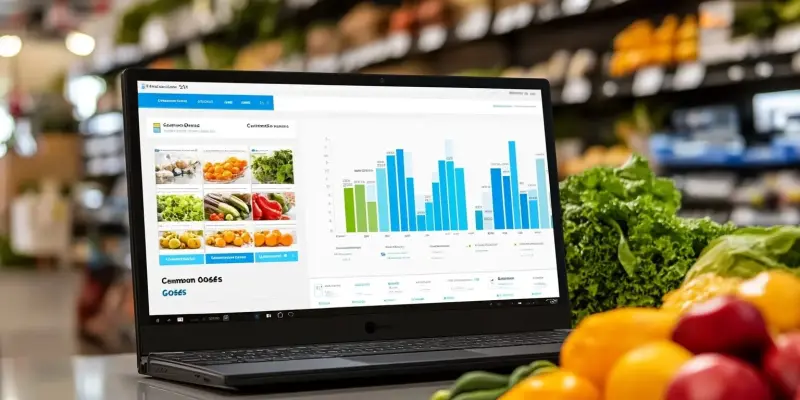In today’s competitive environment, consumer goods companies must navigate a multitude of challenges, including managing complex supply chains, meeting evolving customer expectations, and undergoing digital transformation. These challenges demand comprehensive solutions that can offer effective management and streamlined operations. Microsoft Dynamics 365 presents itself as a powerful answer to these industry demands, combining Enterprise Resource Planning (ERP) and Customer Relationship Management (CRM) functionalities into a unified platform specifically tailored for the consumer goods sector. By doing so, it enables companies to optimize operations, enhance customer engagement, and ultimately drive growth.
Key Capabilities and Advantages
The transformative power of Dynamics 365 lies in its ability to streamline operations, enhance customer engagement, and propel business growth. Its comprehensive suite of tools addresses various pain points faced by consumer goods companies, such as optimizing supply chain operations and ensuring regulatory compliance. By integrating these capabilities into a single platform, Dynamics 365 helps businesses manage their processes more efficiently and effectively.
Dynamics 365’s capabilities extend beyond mere optimization. The platform enhances customer engagement through AI-driven insights, allowing companies to deliver personalized customer experiences that are increasingly becoming the norm in the industry. The actionable data gathered through the platform facilitates better decision-making, providing a competitive edge in a rapidly evolving market. Additionally, the regulatory compliance tools built into Dynamics 365 ensure that businesses can operate smoothly without the constant threat of non-compliance issues.
ERP Features for Consumer Goods
Effective inventory management is a cornerstone of the consumer goods sector, where maintaining optimal stock levels is critical to prevent both surplus and shortage scenarios. Dynamics 365 ERP offers a suite of robust tools for real-time inventory tracking and AI-driven warehouse management, enabling businesses to manage perishable items with greater efficiency and reduce waste. By leveraging advanced analytics, companies can forecast demand more accurately, ensuring they are well-prepared to meet customer needs without overstocking.
Supply chain optimization is another area where Dynamics 365 shines. The platform provides seamless integration with suppliers and logistics providers, enhancing overall agility and efficiency. Real-time monitoring of supply chain activities through AI and machine learning allows companies to identify and resolve bottlenecks before they become significant issues. This level of transparency and responsiveness ensures that the supply chain is resilient and capable of adapting to market fluctuations and unexpected disruptions.
Financial management, an indispensable aspect of any business operation, is made simpler and more efficient with Dynamics 365. The platform automates key financial processes such as budgeting, forecasting, and reporting, providing real-time insights into financial performance. This automation not only ensures compliance with tax regulations and industry standards, but also frees up valuable resources that can be redirected toward more strategic activities. Enhanced financial visibility allows businesses to make informed decisions, driving greater profitability and long-term success.
Leveraging CRM for Customer Experiences
Understanding and engaging customers are vital for sustained business success in the consumer goods industry. Dynamics 365 CRM leverages AI-driven insights to personalize product recommendations and offers, thereby enhancing customer interactions significantly. The platform aggregates customer data across multiple touchpoints, enabling businesses to gain a comprehensive understanding of customer preferences and behaviors. This level of personalization fosters stronger customer relationships and drives repeat business.
Furthermore, Dynamics 365 supports a seamless omnichannel customer service experience. Through the platform, companies can engage with their customers via chat, email, phone, and social media. The integration of AI-assisted case management enables swift resolution of customer issues, enhancing overall customer satisfaction. By providing consistent and responsive service across various channels, businesses can build trust and loyalty with their customers.
Sales teams also benefit from Dynamics 365’s comprehensive CRM capabilities. The platform streamlines the management of leads and opportunities, automating workflows to nurture relationships and drive sales performance. By tracking customer interactions and sales activities, sales teams can focus on high-value opportunities and engage customers more effectively. This not only improves conversion rates but also shortens sales cycles, leading to increased revenue and growth.
Implementation Strategies
Successfully implementing Dynamics 365 requires a strategic approach. The process starts with defining clear objectives, such as improving supply chain visibility or enhancing customer engagement. Setting defined goals ensures that the implementation addresses the specific needs of the business and delivers measurable outcomes. A thorough understanding of the company’s operations and challenges is essential for tailoring the solution effectively.
Partnering with experienced implementation experts is crucial for a smooth deployment. Companies like Dynamics Square can offer valuable insights and expertise to customize Dynamics 365 to meet unique business requirements. Their knowledge and experience ensure that the platform is configured correctly and integrated seamlessly into existing systems. This collaboration minimizes disruptions during the transition and accelerates the realization of benefits.
Training programs are vital for ensuring that the workforce can leverage Dynamics 365 to its full potential. Comprehensive training equips employees with the necessary skills and knowledge to use the platform effectively, driving productivity and efficiency. Moreover, continuous monitoring and optimization are essential for maximizing the platform’s benefits. Using analytics to identify areas for improvement allows businesses to fine-tune processes and adapt to changing market conditions over time.
Benefits for Consumer Goods Companies
In today’s highly competitive market, consumer goods companies face numerous challenges, such as handling intricate supply chains, meeting changing customer demands, and adapting to digital transformation. These obstacles require holistic solutions that can provide efficient management and smoother operations. Microsoft Dynamics 365 emerges as a robust solution to these industry challenges, integrating Enterprise Resource Planning (ERP) and Customer Relationship Management (CRM) capabilities within a single platform, designed specifically for the consumer goods sector. This powerful tool allows companies to streamline operations, improve customer interactions, and ultimately propel business growth. By leveraging Dynamics 365, organizations can gain better insights, enhance decision-making, and drive innovation. This unified platform not only helps in optimizing internal processes but also maximizes customer satisfaction, setting businesses on the path to success in a rapidly changing market landscape.

